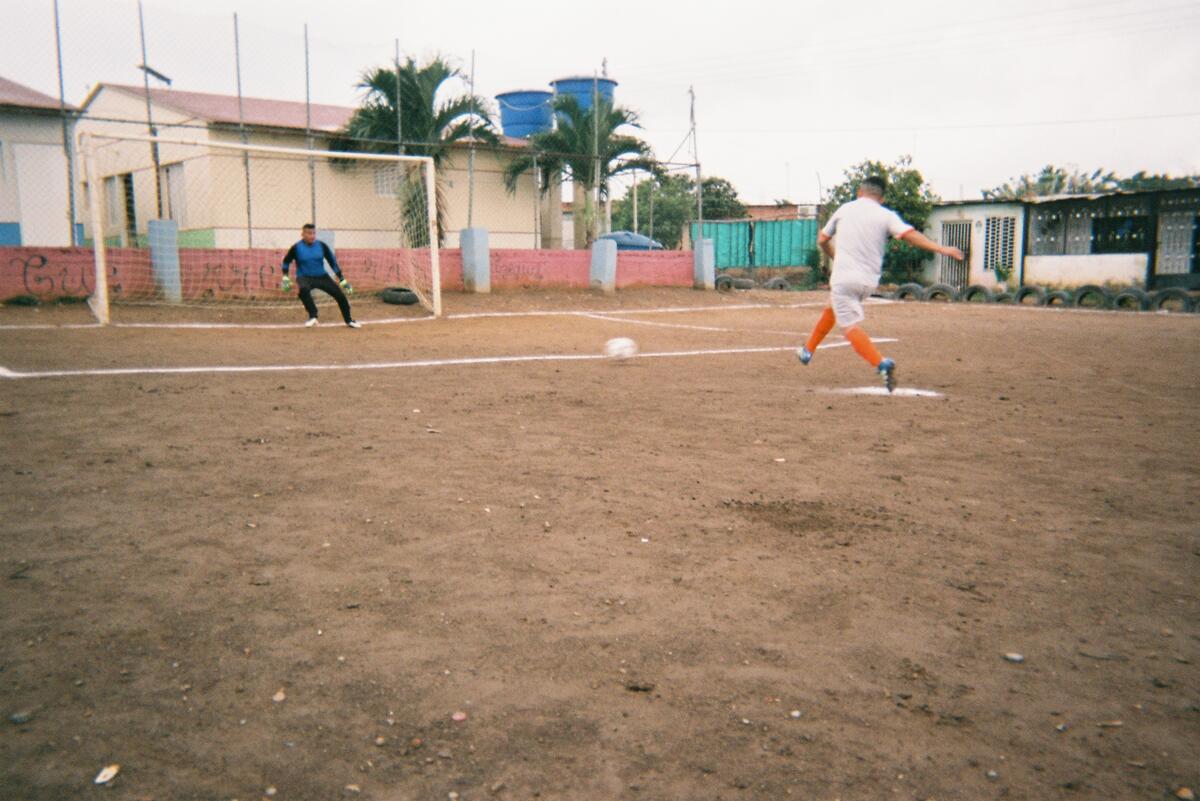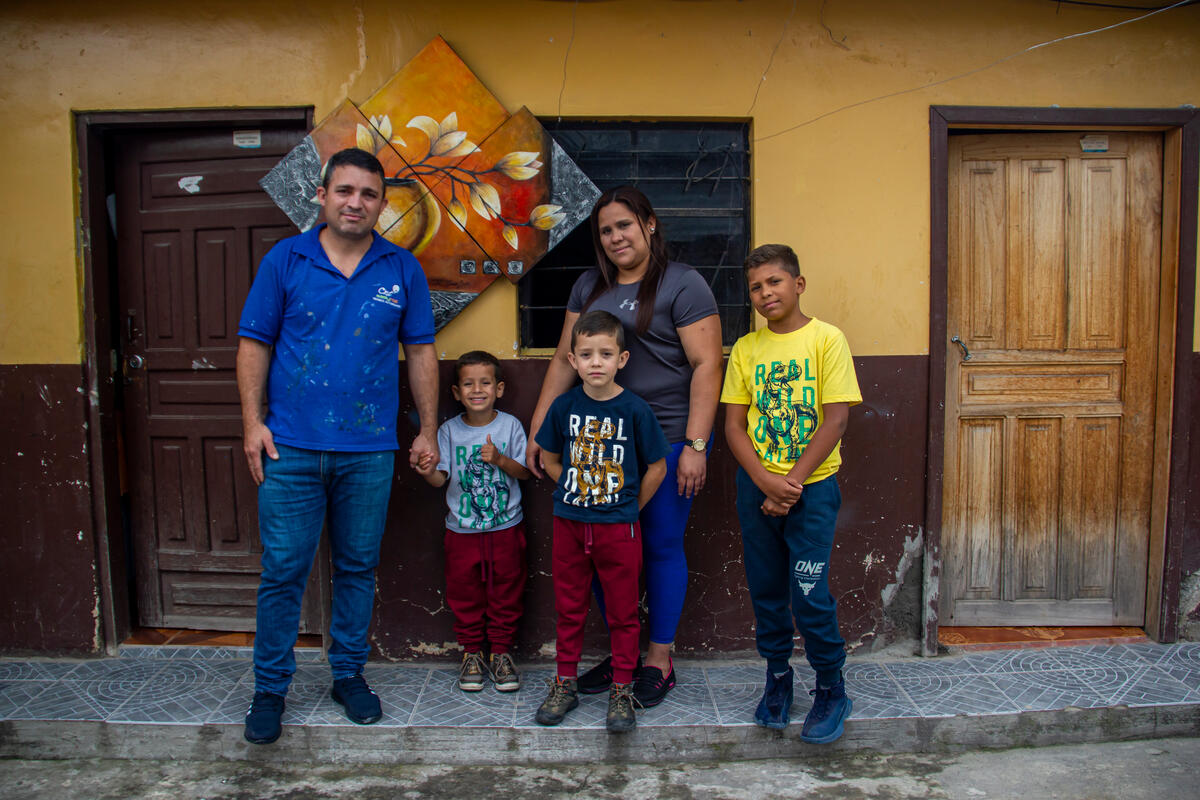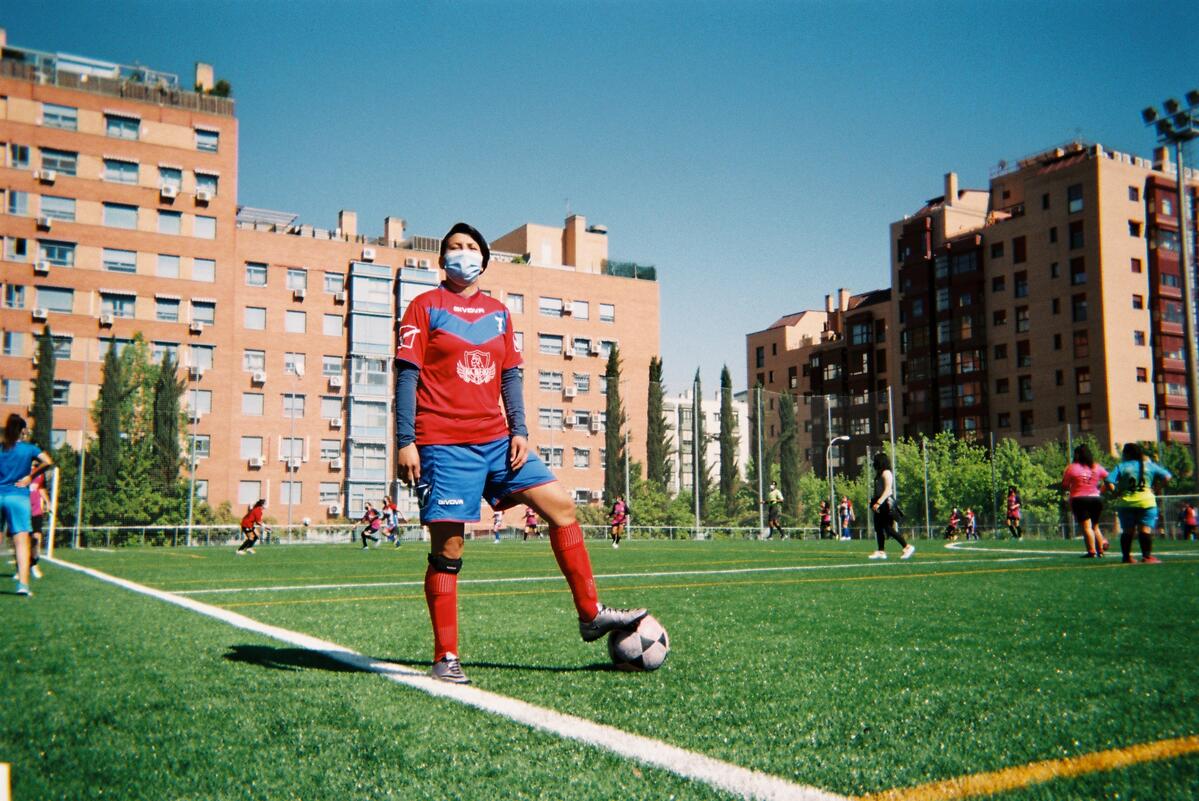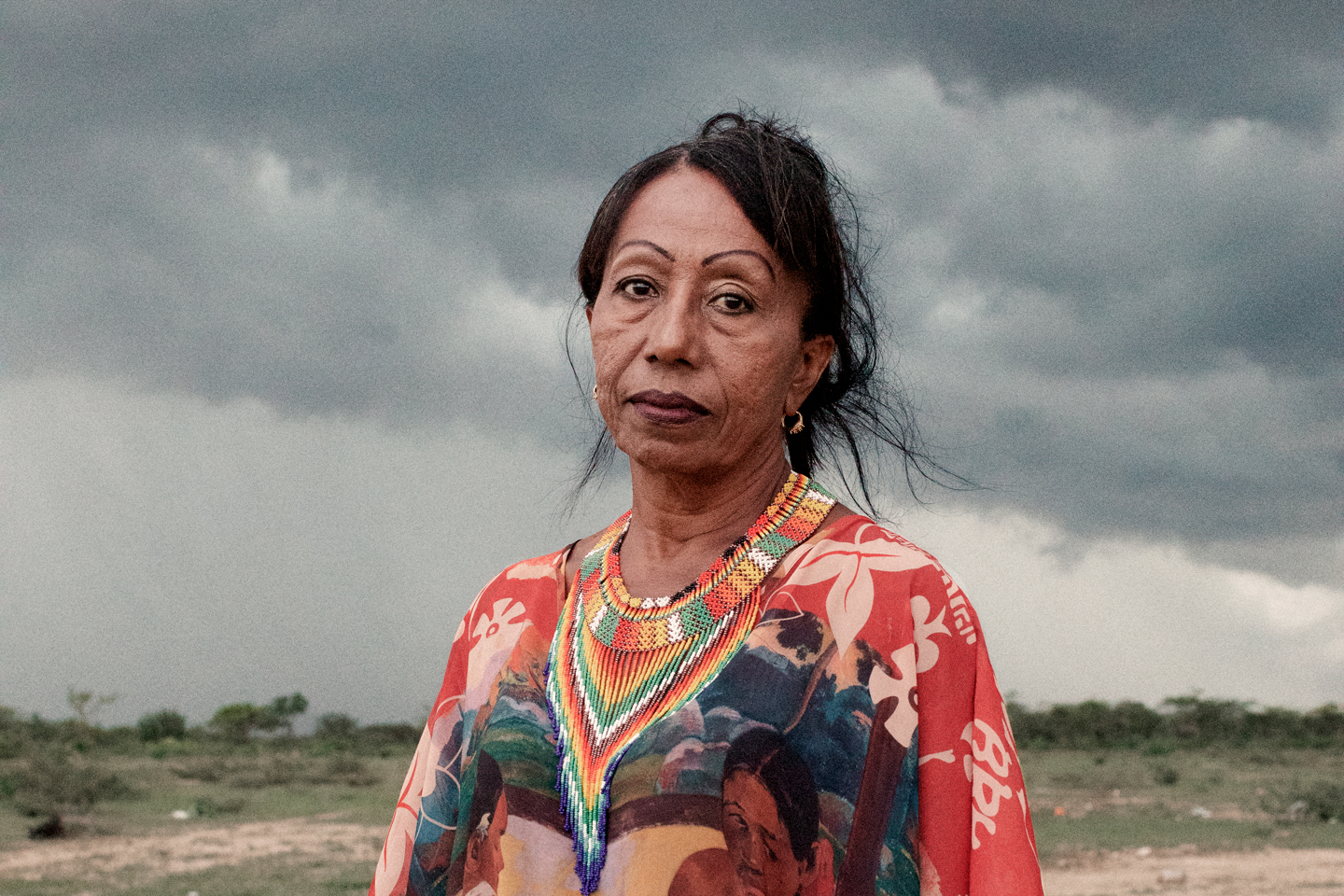Colombia: mission to Middle San Juan River region
Colombia: mission to Middle San Juan River region
This week, UNHCR, OCHA [UN Office for the Coordination of Humanitarian Affairs] and Colombian authorities sent the first humanitarian mission to Colombia's Middle San Juan River region since recent fighting forced at least 1,200 Afro-Colombians to flee their homes in the area - a tropical rainforest some 280 kilometres north-west of the capital, Bogota. It is one of the poorest and most isolated regions of Colombia.
The mission, organised by the municipal and provincial authorities with the support of UNHCR, went to monitor the humanitarian situation in the area, carry out a census of the internally displaced population and evaluate their needs. The mayor of the municipality of the Middle San Juan River, in Chocó province, called for urgent action after at least 1,200 people fled fighting between left-wing guerrillas and right-wing paramilitaries earlier this month. The clashes have resulted in a deepening humanitarian crisis which could be affecting as many as 6,000 people, according to the local authorities. In addition to those displaced by the conflict, thousands more are suffering from an economic blockade imposed by irregular armed groups bent on keeping essential goods out of their enemies reach.
The mission visited 15 Afro-Colombian and indigenous river communities along the San Juan and some of its tributaries and found 606 displaced persons who had not yet been registered or received assistance because of the blockade. Another 640 people, who fled to Itsmina, the main town in the region, at the beginning of August have received emergency humanitarian assistance from the local authorities, the local dioceses and the ICRC [International Committee of the Red Cross]. Including those newly identified by the mission, the number of recently displaced people accounted for is now over 1,200. People interviewed by the mission said that many more are hiding deep in the rainforest or have fled to the mountains.
Humanitarian agencies are now organizing relief assistance for the 606 additional displaced people identified by the mission, and a health team was scheduled to travel to the area today.
The mission was also able to verify first-hand the effects of the economic blockade imposed by an irregular armed group since the beginning of July. The San Juan and its tributaries are the only means of transport in this region and the blockade, which severely restricted the movement of people, food, medicines and basic products like fuel, sugar and salt, has seriously affected the food security, health and education of the communities down-river. The few existing health services in the area have been disrupted, and with medicines scarce, diseases such as malaria, TB and parasitic infections are on the increase. Few teachers have been able to return from their holidays and children have missed over 30 days of school. Even more worryingly, fighters from the irregular armed groups have used school buildings as barracks and damaged and defaced them. Although the blockade has now been partially lifted, the humanitarian and security situation remains precarious.
The mission included representatives of the Colombian Ombudsman's and Attorney General's offices, the Social Solidarity Network (the governmental agency coordinating assistance to displaced people), the provincial health department, the diocese of Itsmina, OCHA and the non-governmental organisation CODHES [Consultoría para los Derechos Humanos y el Desplazamiento].
Once again, UNHCR calls upon all parties to the conflict in Colombia to respect the civilian character of the population and to refrain from practices that endanger them or restrict their freedom of movement and their access to essential goods and services.









